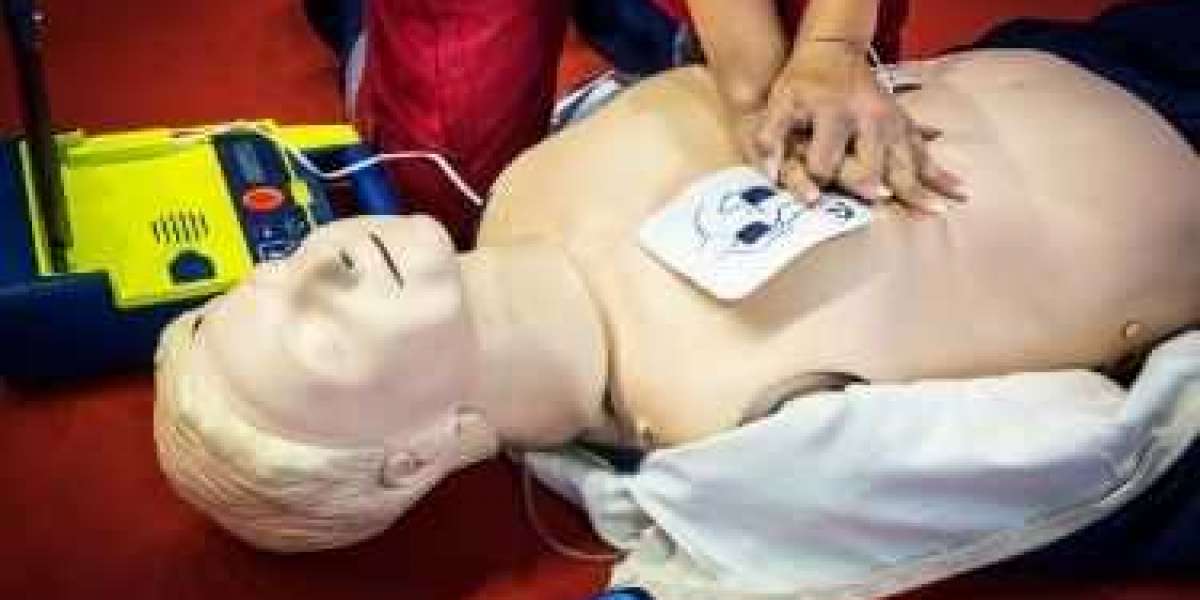Introduction
In the fast-paced world of healthcare, professionals must be equipped with the skills and knowledge to respond swiftly to emergencies. One such critical skill is Basic Life Support (BLS) training, which is essential for healthcare workers across various settings. Whether in hospitals, clinics, or emergency response teams, BLS training empowers individuals to provide immediate care in life-threatening situations. This article explores the significance of BLS training, its components, benefits, and why it is a non-negotiable requirement for healthcare professionals.
Understanding BLS Training
BLS training refers to a set of medical procedures performed in emergency situations to sustain life until advanced medical help arrives. It includes cardiopulmonary resuscitation (CPR), the use of automated external defibrillators (AEDs), and relief of choking in adults, children, and infants. Unlike advanced cardiac life support (ACLS) or pediatric advanced life support (PALS), BLS is designed for rapid response in pre-hospital and hospital settings.
Key Components of BLS Training
1. Cardiopulmonary Resuscitation (CPR)
CPR is a core component of BLS that involves chest compressions and rescue breaths to maintain circulation and oxygenation in cardiac arrest victims. Proper execution of CPR can significantly increase survival rates.
2. Automated External Defibrillator (AED) Usage
An AED is a portable device that delivers an electric shock to restore a normal heart rhythm in victims of sudden cardiac arrest. BLS training teaches professionals how to operate AEDs effectively.
3. Choking Management
BLS training covers techniques such as the Heimlich maneuver and back blows to help individuals who are choking, preventing fatal airway obstruction.
4. Rescue Breathing
Rescue breathing ensures that oxygen is supplied to a person who is not breathing but has a pulse. This technique is vital for individuals suffering from respiratory distress.
5. Team Dynamics and Communication
BLS training emphasizes teamwork and effective communication, crucial elements for ensuring coordinated and efficient emergency response.
Why BLS Training is Essential for Healthcare Professionals
1. Saves Lives
Cardiac arrest can occur at any time and place, making immediate intervention crucial. According to the American Heart Association (AHA), performing BLS within the first few minutes of cardiac arrest can double or triple survival rates.
2. Enhances Workplace Safety
Hospitals, nursing homes, and clinics often deal with critically ill patients. BLS-certified professionals can manage medical emergencies, ensuring a safer environment for patients and staff.
3. Legal and Professional Requirement
Many healthcare organizations mandate BLS certification as a prerequisite for employment. It is also a requirement for medical licensure and continuing education in various healthcare fields.
4. Boosts Confidence and Preparedness
BLS training equips healthcare professionals with the confidence and competence to handle emergencies. The hands-on practice provided in training sessions ensures that responders are well-prepared for real-life situations.
5. Supports Public Health Initiatives
Promoting BLS training among healthcare professionals aligns with global public health initiatives to improve survival rates for cardiac arrest and respiratory emergencies.
BLS Certification and Renewal
BLS certification is typically valid for two years, after which professionals must undergo renewal courses to stay updated with the latest guidelines. Re-certification ensures that individuals maintain their skills and adapt to advancements in life-saving techniques.
Conclusion
BLS training is an indispensable skill for healthcare professionals, contributing to improved patient outcomes and overall public health. Whether you are a nurse, doctor, paramedic, or allied health professional, BLS certification is a fundamental requirement that enhances your ability to save lives. Investing in regular BLS training not only ensures compliance with professional standards but also reinforces a culture of safety and preparedness in healthcare settings.







